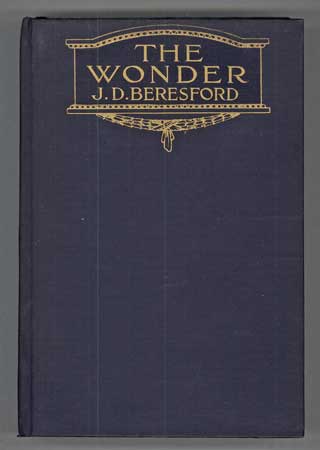Best 1911 Adventures (9)
By:
November 28, 2016
One in a series of 10 posts identifying Josh Glenn’s favorite 1911 adventure novels. Happy 105th anniversary!

J.D. Beresford’s The Hampdenshire Wonder (1911).
Victor Stott is a giant-headed “supernormal” child mutated — in the womb — by his parents’ desire to have a son born without habits. After surveying science, philosophy, history, literature, religion, the best that has been thought and said, the Wonder is dismissive: “So elementary… inchoate… a disjunctive… patchwork.” Young Victor’s adult interlocutors are shattered by his statements about the nature of the universe and human progress; his philosophy begins with rejecting “the interposing and utterly false concepts of space and time,” and ends with the notion that life and all matter are merely “a disease of the ether.” Alas, his interlocutors are unable to live without illusions; they reject the Wonder’s disenchanting insights. Worse, the superboy also makes an enemy of the local clergyman, who (the reader is left to suspect) murders him. The narrator’s eulogy: “He was entirely alone among aliens who were unable to comprehend him, aliens who could not flatter him, whose opinions were valueless to him.”
Fun fact: The first SF novel of real importance about intelligence; it’s the ancestor of Arthur C. Clarke’s Childhood’s End and A.E. Van Vogt’s Slan.
Let me know if I’ve missed any 1976 adventures that you particularly admire.
